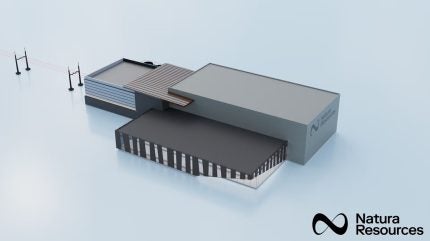
Natura Resources has deployed two advanced nuclear projects in the US state of Texas, focusing on enhancing energy security and reliability.
The projects, located in the Permian Basin and at Texas A&M University’s RELLIS Campus, aim to address Texas’ energy and water needs through innovative molten salt reactor (MSR) technology.
In collaboration with Texas Tech University and Abilene Christian University, Natura Resources has signed a memorandum of understanding (MoU) to advance its MSR tech.
This partnership, involving the Texas Produced Water Consortium at Texas Tech, seeks to integrate MSR technology with water desalination systems to provide sustainable solutions for water scarcity.
The initiative aims to purify produced water from oil and gas operations, making it suitable for agricultural and other beneficial purposes.
Natura Resources founder and CEO Doug Robison stated: “Our collaboration with Texas Tech and ACU is a pivotal step in addressing Texas’ critical water and energy challenges. By leveraging our MSR technology, we aim to secure crucial water resources and drive innovation in clean energy.”
Natura is also partnering with Texas A&M University to deploy the Natura MSR-100 reactor at the RELLIS Campus as part of the Energy Proving Ground project.
This project involves multiple nuclear reactor companies and aims to bring commercial-ready small modular reactors (SMRs) to the site, providing clean energy for the Electric Reliability Council of Texas.
Robison went on: “We are thrilled to continue our partnership with Texas A&M University to showcase how our technology can meet the energy needs of Texas and the nation. The Natura MSR-100 at the RELLIS Campus will play a crucial role in advancing our clean energy mission.”
The Natura MSR-100 features a liquid-fuelled design using fissile uranium material dissolved in a molten salt mixture, enhancing safety and efficiency while producing less long-lived radioactive waste.
The reactor operates at temperatures exceeding 600°C, improving thermal efficiency and electricity generation.
The MSR-100 includes inherent safety features, operating at lower pressures with passive safety mechanisms to reduce accident risks.
The high-temperature heat generated by the MSR-100 can also be utilised for desalination, offering a sustainable source of clean water.



